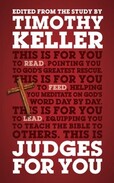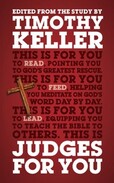Lesson 10: The Downward Spiral
Scripture: Selections from Judges 19-21
Theme: Sin continues to spiral us away from God.
Theme: Sin continues to spiral us away from God.
| the_cycle_lesson_10_-_the_downward_spiral.pdf | |
| File Size: | 742 kb |
| File Type: | |

ICEBREAKER:
Share a time when you said or did something you thought was no big deal, and how it spiraled into something big.
REVIEW/OVERVIEW:
Disclaimer: The final chapters of Judges contain extremely disturbing stories of sexual abuse, murder, war, and destruction. “By modern standards, it is deeply repulsive—and it was by ancient Israelite standards too, going down in Israel’s history as an episode of great shame” (Judges For You, page 181). The story begins with one man’s sexual immorality and spirals into mass destruction and civil war. Take caution as your read this story, not only of the graphic nature describes, but also the ease in which any of us can allow our own private sin to lead us and others into ruin.
THE END BEGINS:
Read Judges 19:1-10
Read My Woman, My Property, pages 182-183, in Judges For You.
Read Judges 19:16-21
The Levite, his concubine and his servant being to make their way home, avoiding Canaanite cities, and find hospitality from an old man who invites them to stay at his home.
Read Judges 19: 22-28 (Warning: includes disturbing images)
IN Judges For You, read the first two paragraphs on page 184 (Don’t Do That Disgraceful Thing) and Israel’s Sodom, pages 184-185.
This story only gets worse. Read Judges 19:29-30 (includes disturbing images)
Read Judges 20:1-3, 8-14 (verse 4-7 recap the previous chapter)
Read How Do We React?, pages 187-188, in Judges For You.
THE REST OF THE STORY:
In Judges 20 & 21 we see violence, death, massacre, war, dishonesty, slavery, and tragedy. We see how sin builds on top of sin, leaving many people damaged in its wake.
Keller writes, “These chapters are a picture of how societies not centered on God must function: worshiping something other than the true God; deciding what seems right, logical and reasonable in their own eyes; wondering why things never seem to go much better; and then deciding that God, if he exists, cannot much care for people.” (page 194)
Share a time when you said or did something you thought was no big deal, and how it spiraled into something big.
REVIEW/OVERVIEW:
- What was your overall opinion on the Book of Judges?
- Which of our stories in Judges did you connect with the best? Why?
- Which story did you struggle with the most?
- What is something God has taught you through our journey in Judges?
- How has our time in The Cycle helped you understand our sinfulness and God’s grace?
Disclaimer: The final chapters of Judges contain extremely disturbing stories of sexual abuse, murder, war, and destruction. “By modern standards, it is deeply repulsive—and it was by ancient Israelite standards too, going down in Israel’s history as an episode of great shame” (Judges For You, page 181). The story begins with one man’s sexual immorality and spirals into mass destruction and civil war. Take caution as your read this story, not only of the graphic nature describes, but also the ease in which any of us can allow our own private sin to lead us and others into ruin.
THE END BEGINS:
Read Judges 19:1-10
- What is your impression of the Levite, his concubine, and her father?
- What does this say about the spiritual and moral failings of the people of Israel?
- How does this set the stage for the downward spiral over the next few chapters?
Read My Woman, My Property, pages 182-183, in Judges For You.
- How does this change your impression of the Levite, his concubine, and her father?
- Keller suggests that both the Levite and her father treat the concubine as an object. What are some examples of this? How might that be a metaphor for their relationship with God?
Read Judges 19:16-21
The Levite, his concubine and his servant being to make their way home, avoiding Canaanite cities, and find hospitality from an old man who invites them to stay at his home.
- Where does the Levite say he is heading? Does that disturb you, based on the purpose of his journey?
- Why do you think the old man suggest they stay at his place and not the town square?
- What might he know that this group of weary travelers might not?
Read Judges 19: 22-28 (Warning: includes disturbing images)
- Who shows up at the old man’s home and what do they demand?
- What does the man offer as an alternative to their demands?
- What does this say about the old man, the area they lived, and their view of women?
IN Judges For You, read the first two paragraphs on page 184 (Don’t Do That Disgraceful Thing) and Israel’s Sodom, pages 184-185.
- How does this story compare/constast to the story of Sodom and Gomorrah (Genesis 19:1-11)
- How does this help illustrate the downward spiral into immorality and idolatry of the Israelite people?
This story only gets worse. Read Judges 19:29-30 (includes disturbing images)
- What does the Levite do?
- Why do you think he does this? What does he hope it will accomplish?
- How do the people of Israel respond to the disturbing delivery?
Read Judges 20:1-3, 8-14 (verse 4-7 recap the previous chapter)
- How do things progress in the downward spiral of this story?
- Why do things escalate into civil war between the tribe of Benjamin and the rest of the Israelites?
- How does the downward spiral of sin cause division and strife in our lives and in our world?
Read How Do We React?, pages 187-188, in Judges For You.
- After studying this story, what does Keller suggest our reaction should be? Why?
- He says that we can find ourselves in this story. Do you see yourself? How?
- What warnings might we find for the modern church in this 3000 year old story?
THE REST OF THE STORY:
In Judges 20 & 21 we see violence, death, massacre, war, dishonesty, slavery, and tragedy. We see how sin builds on top of sin, leaving many people damaged in its wake.
Keller writes, “These chapters are a picture of how societies not centered on God must function: worshiping something other than the true God; deciding what seems right, logical and reasonable in their own eyes; wondering why things never seem to go much better; and then deciding that God, if he exists, cannot much care for people.” (page 194)
|
|
SERMON DISCUSSION: The final chapters of Judges leave us uncertain and unsettled, wondering what is the point of this whole book?
|

THE BEGINNING AND THE END: Read Judges 17:6, 18:1, 19:1, 21:25
The beginning of most cycles began with these word, “The Israelites did evil in the eyes of the Lord” (Judges 3:7, etal), reminding us of the continual failure of the people of Israel. The final verse of this book reads, “In those days Israel had no king; all the people did whatever seemed right in their own eyes” (Judges 21:25).
Read Whose Eyes Matter, pages 124-125, in Judges For You.
QUOTE: “No other book in the Old Testament offers the modern church as telling a mirror as this book. This book is a wake-up call for a church moribund in its own selfish pursuits. Instead of heeding the call of truly godly leaders and letting Jesus Christ be Lord of the church, everywhere congregations and their leaders do what is right in their own eyes.” (Daniel I. Block, Judges-Ruth, page 586)
Read The King We Need, pages 195-196, in Judges For You.
PERSONAL REFLECTION: Invite group members to share their personal reflections on Judges and how it may help them grow in faith and practice.
Close in prayer
The beginning of most cycles began with these word, “The Israelites did evil in the eyes of the Lord” (Judges 3:7, etal), reminding us of the continual failure of the people of Israel. The final verse of this book reads, “In those days Israel had no king; all the people did whatever seemed right in their own eyes” (Judges 21:25).
- What do these verses say about the perspective of right and wrong, good and evil?
- How does what was seen in the eyes of the Lord, compare to what is seen in our own eyes?
- What does this say about the human condition, then and now?
Read Whose Eyes Matter, pages 124-125, in Judges For You.
- What does Keller say about the way God sees things and the way we perceive them (the eyes of the Lord vs our own eyes?
- How has this idea of spiritual perspective been seen throughout our study of Judges?
- What does Keller say about sin and our perception? How does our perception misconstrue our understanding of the world and our need for a savior, judges, and king?
QUOTE: “No other book in the Old Testament offers the modern church as telling a mirror as this book. This book is a wake-up call for a church moribund in its own selfish pursuits. Instead of heeding the call of truly godly leaders and letting Jesus Christ be Lord of the church, everywhere congregations and their leaders do what is right in their own eyes.” (Daniel I. Block, Judges-Ruth, page 586)
Read The King We Need, pages 195-196, in Judges For You.
- How does Israel’s lack of king point us to our own human depravity and the need for a king that is greater than us?
- How does it help us understand our desperate need for Jesus?
- The early readers of Judges would not have understood the depth of God’s grace that we discover once we understand our need for Jesus and his triumphant work om the cross?
- How have you seen Jesus in the stories we have looked at?
PERSONAL REFLECTION: Invite group members to share their personal reflections on Judges and how it may help them grow in faith and practice.
- If you had to take one personal theme from Judges and apply it to your life, what would it be?
- How has our study of Judges helped you grow in faith?
- What is one way it has challenge you in how you practice your faith and how might it reshape your life?
Close in prayer